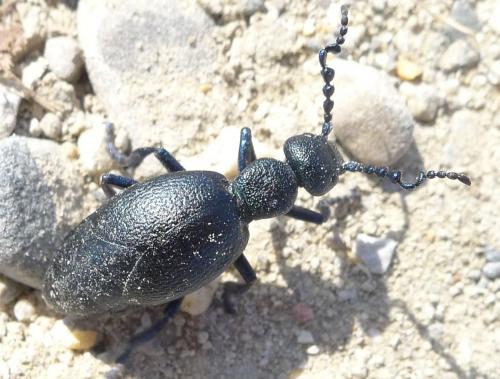Quelques infos sur les relations entre
M.proscarabeus et Apis mellifera:
Ben Hamida
Institut de la Recherche Veterinaire de Tunisie:
The triungulins, safe from their hosts, are transported by them right into the hives. Once inside the colonies, the triungulins drop off, attack and devour eggs, brood (M. cicafrícosus), honey (M. proscarabeus) and pollen. Some, like the larvae of M. variegatus, are even capable of sucking the haemolymph of adult bees which succumb with convulsive movements (Bailey, 1981)
AN INCIDENT OF PRESENCE THE MELOE PROSCARABEUS LARVAE IN THE APIS MELLIFERA COLONY
Paweł Chorbiński, Barbara Tomaszewska
ici
The present event related to larvae of Meloe proscarabeus in the honeybee colony. The larvae of this beetle species were dragged to the bees colony, in which were make the life cycle, but letter were died. In the honeybee colony the larvae of Meloe proscarabeus nourish on the stored food and the bee’s eggs. The damages caused to the larvae were inconspicuous.
